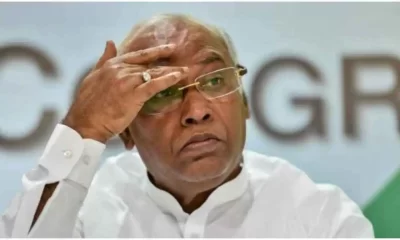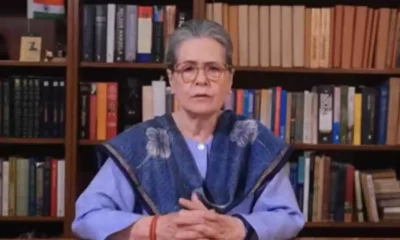Featured
What are the causes of recurring miscarriages? Can PIGT help?
Recurrent miscarriages are a cause of concern for women. Preimplantation genetic testing could help your chances of successful pregnancies to labor. Consult with Dr. Hrishikesh Pai at Bloom IVF Clinic, Mumbai.

Recurrent miscarriages are a cause of concern for women. Preimplantation genetic testing could help your chances of successful pregnancies to labor. Consult with Dr. Hrishikesh Pai at Bloom IVF Clinic, Mumbai.
What are the causes of recurring miscarriages? Can PIGT help?
Miscarriages are a cause of concern for women, especially those with recurrent miscarriages.
Almost 20% of the pregnancies result in miscarriages, usually in the first trimester.
That is why the doctor’s advice is that you should avoid all kinds of physical exertion during the first trimester, including intercourse.
When you are facing recurrent miscarriages, it breaks you down and gets you worried about your chances of being a parent.
Seek out an experienced and not just renowned but revered gynecologist to help you through the process of pregnancy and childbirth.
You can Consult Dr. Hrishikesh Pai, the founder of a number of IVF clinics pan India, including Mumbai.
He has almost four decades of experience and many successful IVF procedures to his credit.
The gynecologist is most likely to suggest you take a preimplantation genetic test in Mumbai to determine the cause of recurring miscarriage and help select the healthiest embryo for the implantation.
But for undergoing this process, you will have to undergo an IVF procedure so that the doctor can carry out the preimplantation genetic test.
What is the Procedure of IVF?

The process of IVF includes obtaining a mature egg from a women’s ovaries and fertilizing it with sperm in a Laboratory. This fertilized egg (embryo) is then transferred into the uterus for implantation.
One complete cycle of IVF takes about 3 weeks.
When the egg is fertilized, it goes through many stages, which is carefully monitored.
Preimplantation Genetic Testing:
The technician obtains an embryo that has been prepared for IVF and sends for Preimplantation genetics testing where the genetic attributes of the embryo are tested.
The healthiest embryo is chosen for IVF based on the test results and transferred into the vagina.
This process helps in increasing the success rate of the IVF procedure.

Who is the right candidate for Preimplantation Genetic Testing?
Many women have difficulty conceiving naturally. They may not be able to conceive naturally because of:
- Their age: if they have crossed the age of thirty.
- Some underlying hormonal issue causes PCOS, thyroid, diabetes, or other immunological disorder.
- Infertility in men and women.
- Men or women have a history of some genetic disease in their families.
- But mainly, they are unable to conceive because of the abnormalities in the chromosomes.
Abnormal chromosome structure is the primary reason why the embryo transfer results in miscarriage.
If you have come across 2 successive miscarriages, it’s time to go for Preimplantation genetics testing in Mumbai, as per the doctor’s recommendation.
Whichever is your cause for not carrying a pregnancy to term, please seek out Dr. Hrishikesh Pai, an exceptional gynecologist, and IVF specialist. He is a ray of hope for the couples in distraught due to the want of a child.
You may also be advised to undergo other tests to determine other causes of recurring miscarriages.
These tests may include:
- Imaging tests to check anatomical abnormalities.
- Tests for autoimmune disorders.
- Endocrine tests
- Blood clotting tests
- Chromosome testing for balanced translocation.
How is Preimplantation Genetic testing performed?
The doctor has to carry out the process of IVF. This is done to obtain an embryo for Preimplantation genetic testing.
The embryologist keeps a watch on the stages of the embryo. When it is in the blastocyst stage, the embryologist will obtain the embryo’s cell and send it for preimplantation genetic testing in Mumbai.
The Blastocyst stage has about 100 to 150 cells. The embryos undergo a biopsy, and 3 to 4 cells are sent for testing.
It takes approximately 2 months for the results to arrive. So, while we are waiting for the results of the biopsied embryos, those embryos are frozen using the cryopreservation technique.
Once the results are back, the embryo of the cell that has tested normal for chromosome count and structure is selected for the transplant.
The doctor will take a single embryo for transplant to avoid multiple pregnancies, and the rest of the healthy embryos are preserved using cryopreservation for use in the future.
Dr. Hrishikesh Pai has carried out this procedure on patients suffering from thalassemia and sickle cell anemia and assisted them in delivering healthy babies.
So, there is no reason to lose heart. Science is a blessing; accept it and take your chances with assisted reproduction.
You should soon be able to hold your baby in your arms.
We are wishing you “GOOD LUCK.”
Featured
Nima Sulaiman joins HiLITE Group Board, her father gifts her a Porsche
Nima expressed her gratitude for the opportunity and her eagerness to contribute to the group’s success.

In a move signalling a generational shift in leadership and a commitment to empowering women in the business world, Nima Sulaiman, the daughter of HiLITE Group Chairman P. Sulaiman, has been welcomed onto the board of directors with a stunning gesture—a Porsche worth Rs 3 crore.
At just 18, Nima began her journey with HiLITE Group as a customer service trainee at Hug a Mug Cafe. From there, she transitioned to management roles, showcasing her talent and dedication. With a B.Sc in Economics from the University of London in Singapore, Nima brings a unique blend of academic prowess and practical experience to her new position.
As the Director of HiLITE Urban, a subsidiary of HiLITE Group, Nima is poised to continue the company’s legacy of excellence in construction and development. With a focus on providing quality living spaces and international standards in India, HiLITE Group has been instrumental in transforming Kozhikode city with its innovative projects that include premium residential buildings, ultra modern business parks, state-of-the-art malls and world-class entertainment theaters.
Group Chairman P. Sulaiman expressed his sentiments regarding his daughter’s recent appointment within the Group. He said, “I am immensely proud of Nima’s accomplishments and firmly believe that she is capable to take on greater responsiblities. HiLITE Group has always shed light on the significance of acknowledging and empowering women in leadership positions.” He further emphasised, “The emotional intelligence that women bring to the table is pivotal for fostering effective leadership and establishing trust.”
Nima, in turn, expressed her gratitude for the opportunity and her eagerness to contribute to the group’s success. “Inspired by my experiences visiting renowned malls worldwide, I strive to enrich the atmosphere of HiLITE malls and other projects, infusing them with vibrancy and youthfulness,” she said.
The appointment of Nima Sulaiman to the board of directors represents a significant milestone for HiLITE Group and a testament to the company’s commitment to innovation and inclusivity in the business world. As Nima takes on her new role, she stands as a beacon of inspiration for young women entrepreneurs in South India and beyond.
Featured
Steps to effective retirement planning
The importance of retirement planning depends on ensuring you have adequate funds to live comfortably after you stop earning a stable income.

Retirement planning is a critical aspect of financial stability that often goes overlooked until it’s too late. In India, where the culture of savings is ingrained yet formal retirement planning is still evolving, understanding, and initiating a retirement plan is more crucial than ever.
The importance of retirement planning depends on ensuring you have adequate funds to live comfortably after you stop earning a stable income. It is not only about saving a part of your earnings but also about investing in yourself. Here are some crucial reasons to begin retirement planning – combating inflation, securing financial freedom, managing medical expenditures, maintaining your living standard, supporting family requirements, meeting post-retirement goals, preparing for unanticipated circumstances, and leaving a legacy for dependents.
Here are ways to effectively plan your retirement –
Ø Utilise an online retirement calculator
An important instrument for planning, an online retirement calculator can assist you estimate how much you require to save to live a post-retirement life. It factors in your existing age, savings, retirement age, investments, and anticipated inflation rates.
Anjali is looking to retire at the age of 60 with a lifestyle that needs Rs 50,000 per month. Utilising an online retirement calculator, she considers her existing age of 30, anticipated inflation of 6 per cent and prevailing savings. The calculator estimates she needs a corpus of approximately Rs 2.5 crores to sustain her retirement life, helping her strategise her savings and investments accordingly.
Ø Start early
The sooner you start, the more you benefit from compound interest. Even starting small can lead to substantial growth over decades.
Imagine Rohit, who starts saving Rs 5,000 a month at age 25 in a mutual fund that averages an 8% annual return. By the time he turns 60, his investment would have grown to over Rs 1.50 crore, thanks to compound interest. In contrast, if Priya starts saving the same amount at 35 under the same conditions, she would accumulate about Rs 67 lakhs by age 60. The decade-long head start allows Rohit’s investments more time to compound, significantly impacting his retirement corpus.
Ø Create a retirement budget
Estimate your post-retirement expenses, considering inflation and changing lifestyle needs. Including fixed expenses, healthcare, leisure, and unexpected costs.
Vijay, nearing retirement, lists down his monthly expenses including groceries, utilities, healthcare, and leisure activities like travel and hobbies. Considering inflation, he predicts his current monthly expense of Rs 30,000 will rise to Rs 80,000 by the time he retires. This projection helps him understand how much he needs to save to maintain his lifestyle post-retirement.
Ø Opt for a pension plan
Investing in pension plans offered by insurance companies can guarantee a steady income post-retirement. They also provide tax benefits under Section 80C.
Raj invests in a pension plan that promises a monthly income of Rs 20,000 after retirement. This plan not only secures his future financially but also offers tax benefits today, making it a win-win investment for his retirement years.
Ø Diversify your investment portfolio
Do not put all your eggs in one basket. Invest in a mix of asset classes including equity, debt, mutual funds, and real estate. Consider your risk appetite and investment horizon.
Meena, an investor, allocates her savings across different asset classes—40 per cent in equity for growth, 30 per cent in bonds for stability, 20 per cent in mutual funds for diversified exposure, and 10 per cent in real estate for passive income. This diversification helps balance her risk and provides multiple growth avenues, ensuring her portfolio is well-equipped to handle market volatility.
Ø Maximise your EPF and PPF contributions
The EPF or employee provident fund and PPF or public provident fund are excellent tax-saving instruments that offer secure, high-interest earnings for retirement.
Sunita contributes the maximum allowable limit to her EPF and PPF accounts every year. These contributions not only reduce her taxable income but also accumulate tax-free earnings, creating a significant retirement fund that’s secure and government-backed.
Ø Maintain an emergency fund
Ensure you have an emergency fund worth at least 6-12 months of living expenses. This fund should be easily accessible and kept separate from your retirement savings.
Deepika saves six months’ worth of expenses in a liquid fund, separate from her investments and retirement savings. This fund acts as a financial cushion during unexpected events, such as medical emergencies or sudden unemployment, ensuring her long-term plans remain undisturbed.
Ø Invest in NPS or national pension scheme
The NPS is a government-backed retirement planning instrument that is market-linked and offers various fund options based on your risk tolerance.
Karan opts for the NPS, choosing a mix of equity, corporate bonds, and government securities, aligning with his moderate risk appetite. This allows his retirement savings to grow with the market while offering the flexibility to adjust the asset allocation as he gets closer to retirement.
Ø Educate yourself financially
Stay informed about financial planning, investment options, tax laws, and market trends. Knowledge is power, especially when it comes to managing your money.
Neha spends her time reading blogs linked with finance, attending workshops, and consulting with financial professionals. This constant learning equips her with considerable knowledge to make better decisions about her tax planning, investments, and retirement plan, ensuring she enhances her financial potential.
Ø Assess as well as adjust your plan periodically
Your retirement plan should adapt to your changing life circumstances. Annually, review your assets, savings, and goals and make any necessary modifications.
Every year, Amit updates his retirement plan to reflect changes in his income, spending, and life goals. This regular review keeps him on pace with his retirement objectives, allowing him to make necessary modifications to his savings rate and investment selections.
Final thoughts
Retirement planning is more than a financial responsibility; it is a commitment to your future self. Beginning today not just secures your financial future, but even endows you with mental peace and the opportunity to spend your retirement years as you see fit. Attaining a comfortable retirement involves vision, a proactive attitude, and discipline. Note that it is never too early or very late, to begin with retirement planning. The steps you take now can result in a better and more secure tomorrow.
Featured
Supreme Court AOR firm Vedic Legal settles the debate: Can ancestral property be sold without the consent of successors?

New Delhi (India), June 24: Ancestral property is a valuable asset that is passed
down from one generation to another. It is a symbol of family heritage and pride
that holds significant sentimental value for many families. However, the question
that has been long debated is whether ancestral property can be sold without the
consent of all successors.
According to Indian law, ancestral property is considered to be the collective
property of all successors of the original owner. As a result, the sale of ancestral
property without the consent of all successors is generally not allowed. The
reasoning behind this is that ancestral property is seen as a collective asset, and
all successors have an equal right to it.
However, in certain cases, the sale of ancestral property without the consent of all
successors may be allowed by law. For instance, in cases where the owner of the
property has died intestate and there is no will or agreement in place, legal heirs
may be able to sell off the ancestral property without seeking consent from all
other successors.
It is important to note that the rules regarding the sale of ancestral property
without consent may vary from state to state. Therefore, it is essential to consult a
lawyer before making any decision regarding the sale of ancestral property.
Supreme Court Advocate on record firm with Vedic Legal, a renowned law firm
specializing in property and succession law, recently settled a landmark case in
the Supreme Court. The case involved the sale of ancestral property without the
consent of all successors, and Supreme Court AOR firm Vedic Legal argued that
such a sale was not permissible under Indian law.
The verdict of the Supreme Court, based on Supreme Court AOR firm Vedic Legal
arguments, confirmed that ancestral property could not be sold without the
consent of all successors. This ruling has set a precedent for future cases and has
provided clarity on a contentious issue that has long been debated.
The complexity of the issue of selling ancestral property without the consent of
successors is not lost on legal experts. It is crucial to consider the legal and
ethical implications of such a sale, as it can have significant consequences for all
parties involved.
In some cases, however, selling the ancestral property without the consent of all
successors may be the best option. For example, in cases where there are
disputes between heirs or when some heirs are not reachable, selling ancestral
property without the consent of all successors may be allowed by law.
Additionally, in certain circumstances, selling the ancestral property without
consent may be the only way to resolve financial difficulties faced by the owners of
the property. This may include situations where the owners require funds for
medical treatment or other urgent needs.
However, any decision to sell the ancestral property without the consent of all
successors should be made after careful consideration and consultation with legal
experts. It is essential to ensure that all legal requirements are met and that the
rights of all parties involved are protected.
The sale of ancestral property without consent is a complex issue that requires
careful consideration and legal guidance. While it may be possible in some cases,
it is generally accepted that ancestral property is a collective asset that cannot be
sold without the consent of all successors.
The recent landmark case settled by Supreme Court AOR firm Vedic Legal in the
Supreme Court has provided clarity on the legal aspect of selling ancestral
property without the consent of successors. It has set a precedent for future cases
and has highlighted the importance of seeking legal guidance before making any
decision regarding the sale of ancestral property.
-

 2024 Lok Sabha Elections16 hours ago
2024 Lok Sabha Elections16 hours agoPM Modi votes at a polling booth in Gandhinagar Lok Sabha seat, urges people to ensure record turnout
-

 2024 Lok Sabha Elections15 hours ago
2024 Lok Sabha Elections15 hours agoMallikarjun Kharge casts vote in Kalaburagi, Karnataka
-

 Cricket news14 hours ago
Cricket news14 hours agoKKR’s Kolkata-bound flight diverted twice due to bad weather, team spends night in Varanasi
-

 2024 Lok Sabha Elections13 hours ago
2024 Lok Sabha Elections13 hours agoFormer Congress leader Radhika Khera joins BJP days after quitting over harassment
-

 Entertainment10 hours ago
Entertainment10 hours agoJolly LLB 3: Akshay Kumar, Arshad Warsi starrer lands in legal trouble, accused of disrespecting judiciary
-

 2024 Lok Sabha Elections14 hours ago
2024 Lok Sabha Elections14 hours agoPM Modi addresses rally in Khargone, urges people to choose between vote jihad or the establishment of Ram Rajya
-

 2024 Lok Sabha Elections12 hours ago
2024 Lok Sabha Elections12 hours agoAround 60.19% voter turnout till 5pm, Assam records highest voter turnout of 74.86%
-

 India News15 hours ago
India News15 hours agoSalman Khan firing case: Mumbai Crime Branch arrests fifth accused






